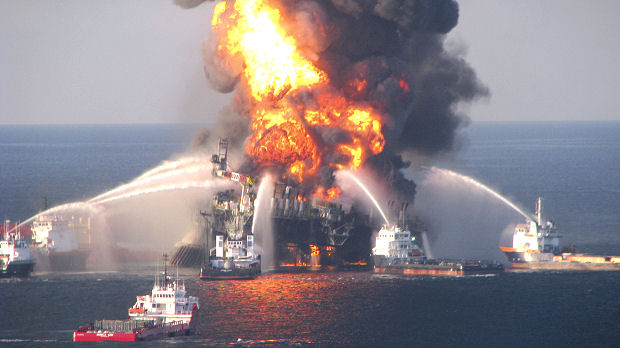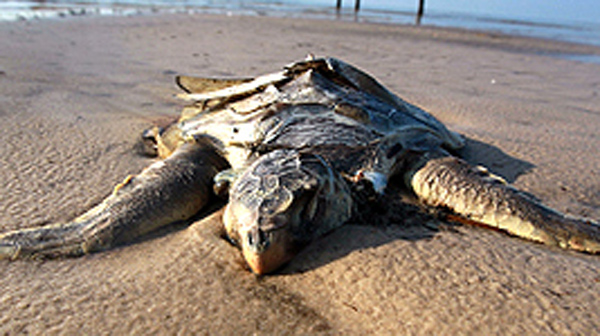Oil spills: Nigeria vs Gulf of Mexico
As energy giant Shell admits liability for two large oil spills in Nigeria, Channel 4 News compares the figures from the Niger Delta with the BP disaster in the Gulf of Mexico.

Establishing the facts and figures of Nigerian oil spills is a tricky business: it depends who you talk to. On one hand Shell says 415,000 barrels have spilt in a decade while the victims’ lawyer claims the oil giant has spilt roughly 400,000 in just two incidents.
Shell has told Channel 4 News that in the last decade the equivalent of 415,000 barrels of oil have been spilt in Nigeria. It accepts responsibility for around 25 per cent of these and blames the rest on theft and sabotage.
Shell says “there is no comparison” between the Gulf of Mexico spill and the situation in the Niger Delta. It says that in 10 years the total amount of oil spilt in Nigeria is less than a quarter of that lost in the BP disaster in April 2010, which conservative estimates put at some 2 million barrels.
On Wednesday Shell said that it accepted responsibility for two Ogoniland spills in 2008 and 2009, and has promised to pay compensation to the Bodo community who say their communities dependent on fishing were destroyed.
“Shell Petroleum Development Company of Nigeria has always acknowledged that the two spills which affected the Bodo community, and which are the subject of this legal action, were operational,” a statement from Shell said.
“SPDC is committed to cleaning up all spills when they occur, no matter what the cause.”
But lawyer Martyn Day, who is representing the Ogoniland victims, claims the amount spilt in these two incidents alone is equal to 20 per cent of the Gulf of Mexico spill. Staying with the conservative estimate that 2 million barrels were spilt in the BP disaster the figure for the two Nigeria spills would equal 400,000 barrels.
Part of the massive discrepancy is being blamed on the fact that the Bodo community say the 2008 spill started in August where as Shell argues it began in October.
Although Shell has accepted responsibility and has agreed to pay comensation Channel 4 News understands that if the two parties cannot agree on a figure then the case could still end up in court.
‘Shocking sights’
The United Nations Environment Programme (UNEP) is due to present a report on oil pollution, unveiling the full extent of almost 50 years of crude spills in the Ogoniland region of Nigeria.
The study has been partly funded by Shell.
UNEP and rights groups say it is the first independent and scientific study of its kind in the Niger Delta and it is expected to lay out what action is needed by oil companies and the government to deal with the problem.
“The impact of some of these sights is shocking and have had a devastating impact and I have seen huge spills recently that are not cleaned up,” said Audrey Gaughran, director of the Global Thematic Issues Programme at Amnesty International.
“We expect there will be an aim to get the government to really deal with the problems of oil spills and to stop oil companies just going into public relations mode.”
The Niger Delta spreads across three states in Africa’s most populous nation, comprising thousands of kilometres of labyrinthine creeks, swamps and waterways which hold vast crude oil reserves.
More on the BP oil spill
-

BP protest: ‘Tate should come clean about dirty oil money’
20 April 2011
-

Flawed cement used on BP Gulf oil rig
29 October 2010
-

BP oil spill: Environmental impact
24 June 2010



